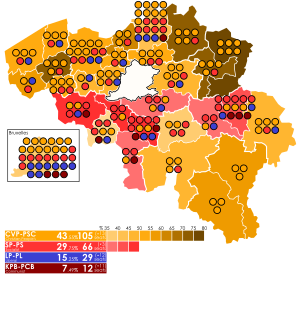
General elections were held in the Netherlands on 5 July 1922. They were the first elections held under universal suffrage, which became reality after the acceptance of a proposal by Henri Marchant in 1919 that gave women full voting rights. Almost all major parties had a woman elected. The number of female representatives increased from one to seven. Only the Anti-Revolutionary Party principally excluded women from the House of Representatives. Another amendment to the electoral law increased the electoral threshold from 0.5% to 0.75%, after six parties had won seats with less than 0.75% of the vote in the previous elections.

Parliamentary elections were held in Russia on 12 December 1993. They were the first parliamentary elections in post-Soviet Russia and the only time to the Federation Council, with future members appointed by provincial legislatures and governors.
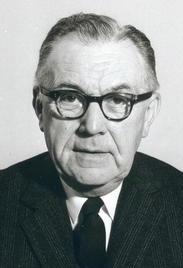
General elections were held in Belgium on 4 June 1950. The result was a victory for the Christian Social Party, which won 108 of the 212 seats in the Chamber of Representatives and 54 of the 106 seats in the Senate. Voter turnout was 92.6%. This election was the last one in Belgian history where a single party achieved an absolute majority. Elections for the nine provincial councils were also held.

General elections were held in Belgium on 11 April 1954. The dominant Christian Social Party won 95 of the 212 seats in the Chamber of Representatives and 49 of the 106 seats in the Senate. Voter turnout was 93.2%. Elections for the nine provincial councils were also held.

General elections were held in Belgium on 1 June 1958. The result was a victory for the Christian Social Party, which won 104 of the 212 seats in the Chamber of Representatives and 53 of the 106 seats in the Senate. Voter turnout was 93.6% in the Chamber election and 93.7% in the Senate election. Elections for the nine provincial councils were also held.

General elections were held in Belgium on 26 March 1961. The result was a victory for the Christian Social Party, which won 96 of the 212 seats in the Chamber of Representatives and 47 of the 106 seats in the Senate. Voter turnout was 92.3%. Elections for the nine provincial councils were also held.

General elections were held in Belgium on 23 May 1965. The result was a victory for the Christian Social Party, which won 77 of the 212 seats in the Chamber of Representatives and 44 of the 106 seats in the Senate. Voter turnout was 91.6%. Elections for the nine provincial councils were also held.

General elections were held in Belgium on 7 November 1971. The result was a victory for the Christian People's Party, which won 40 of the 212 seats in the Chamber of Representatives and 34 of the 106 seats in the Senate. Voter turnout was 91.5%. Elections to the nine provincial councils were also held.

General elections were held in Belgium on 10 March 1974. The Belgian Socialist Party emerged as the largest faction in the Chamber of Representatives with 59 of the 212 seats. Voter turnout was 90.3%. Elections were also held for the nine provincial councils, as well as for the Council of the German Cultural Community for the first time.
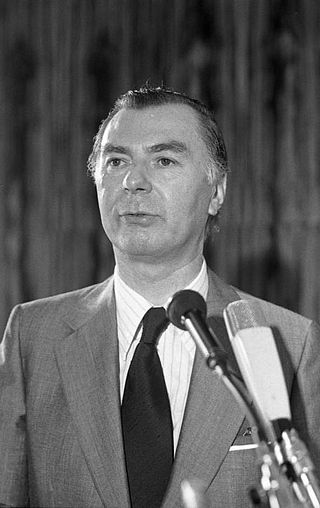
General elections were held in Belgium on 17 April 1977. The result was a victory for the Christian People's Party, which won 56 of the 212 seats in the Chamber of Representatives and 28 of the 106 seats in the Senate. Voter turnout was 95.1%. Elections were also held for the nine provincial councils and for the Council of the German Cultural Community.
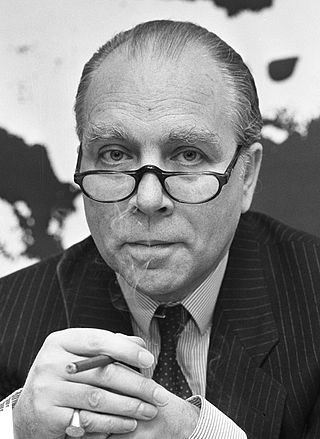
General elections were held in Belgium on 8 November 1981. Voter turnout was 94.5% in the Chamber election and 94.6% in the Senate election. Elections were also held for the nine provincial councils and for the Council of the German Cultural Community. They were the first elections after the voting age was lowered from 21 to 18. This contributed to the success of the socialist parties and the green parties.

General elections were held in Belgium on 17 December 1978. The Christian People's Party emerged as the largest party, with 57 of the 212 seats in the Chamber of Representatives and 29 of the 106 seats in the Senate. Voter turnout was 94.8%. Elections were also held for the nine provincial councils and for the Council of the German Cultural Community.
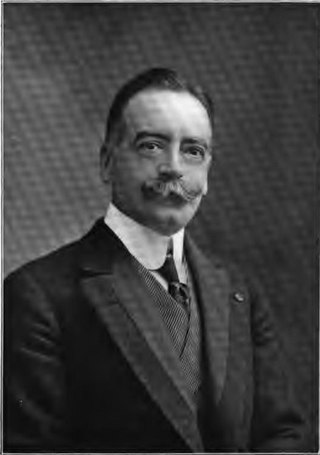
General elections were held in Belgium on 27 November 1932. The Catholic Party won 79 of the 187 seats in the Chamber of Representatives and 42 of the 93 seats in the Senate. Voter turnout was 94.3%.
General elections were held in Belgium on 16 November 1919. Although the Belgian Labour Party received the most votes in the Chamber of Representatives elections, the Catholic Party remained the largest party in both the Chamber and the Senate. Voter turnout was 88.5% in the Chamber elections.

General elections were held in Belgium on 20 November 1921. The result was a victory for the Catholic Party, which won 70 of the 186 seats in the Chamber of Representatives. Voter turnout was 91.1% in the Chamber election and 91.0% in the Senate election.

Full general elections were held in Belgium on 14 October 1894, with run-off elections held on 21 October 1894.
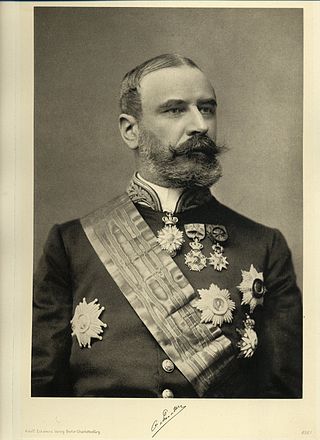
Partial legislative elections were held in Belgium on 22 May 1898, with run-off elections held on 29 May. Under the alternating system, elections for the Chamber of Representatives were held in only four out of the nine provinces: Hainaut, Limburg, Liège and East Flanders. Thus, only 75 seats out of the 152 seats in the Chamber of Representatives were up for election. The Catholic Party retained their absolute majority.
Partial general elections were held in Belgium on 25 May 1902. The result was a victory for the Catholic Party, which won 54 of the 85 seats up for election in the Chamber of Representatives. Voter turnout was 95.7%.
Full general elections were held in Belgium on 2 June 1912.

Parliamentary elections were held in Portugal on 17 and 31 July 1836.
